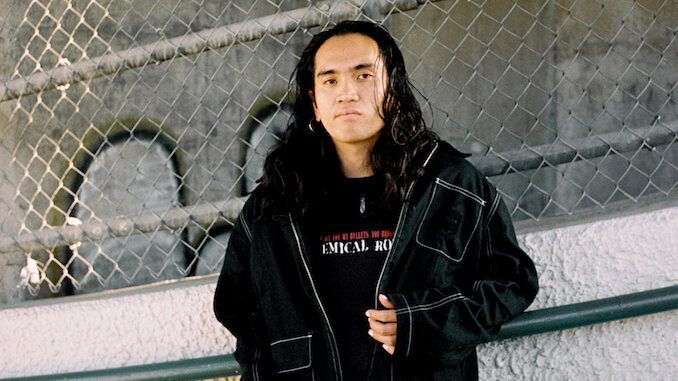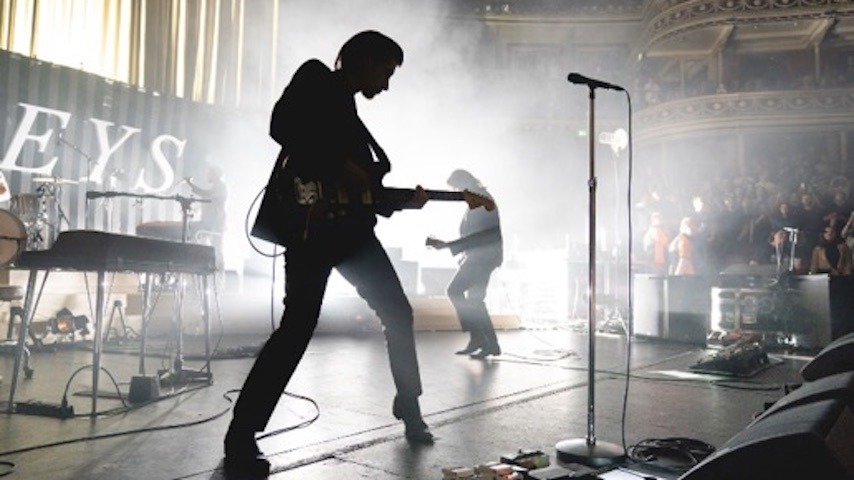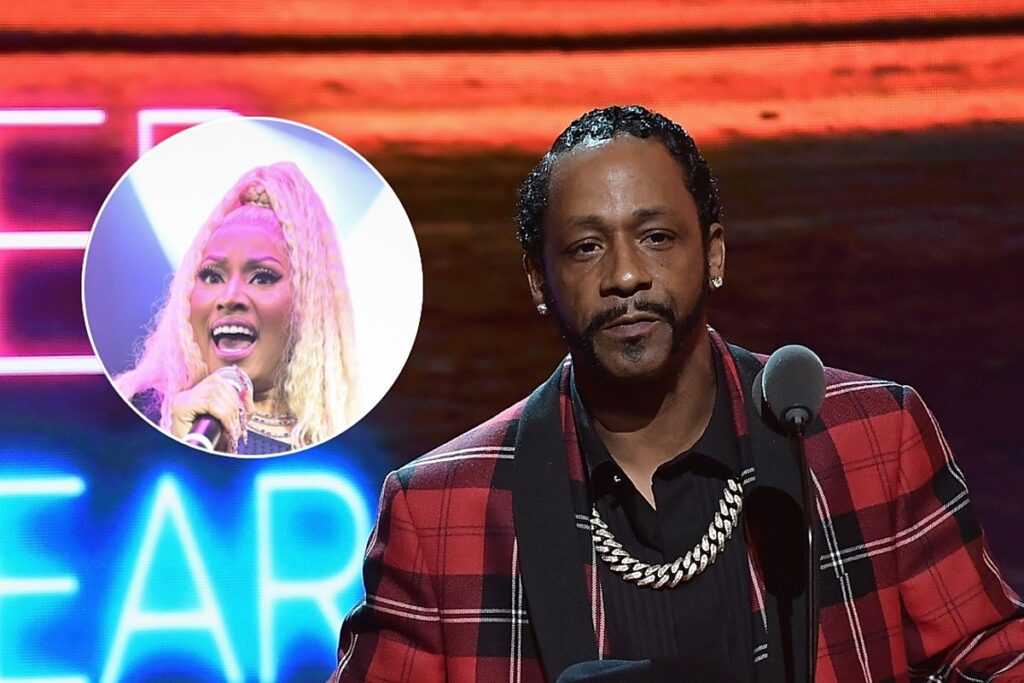Even when growing up in the midst of the bustle that comes with living in an immigrant family, there are still pockets of silence. Unspoken family secrets slowly come to a head and generational traumas float to the surface, shifting the perceptions of what home is. For San Diego-based Filipino-American artist Lecx Stacy, these are concepts he has only just started to reckon with, finding a medium in music. On his debut album Bundok, the Tagalog word for “mountain,” Stacy pulls back layers of his identity to create a multifaceted account of what it means to be in tune with one’s culture, shifting through centuries of colonialism in search for what is real and what is whitewashed.
His music is turbulent, blending together traditional guitars and ballad-inspired orchestral samples with harsh textures and post-hardcore walls of sound as he edges closer to harmony between the two worlds. Existing within this duality is the essence of Stacy’s work as he parses reconstructed versions of a culture he is still learning about each day. For him, music was a necessity, serving as an impulsive method of making sense of his shifting reality. The result was Bundok, a breathtaking collage of revenge, fear and healing. With input from his family, Stacy has crafted a scrapbook of memories as he continues to make sense of what family means, and how the preconceived idea of the American Dream can crumble as quickly as it is erected in one’s impressionable mind.
In Stacy’s new Bennett Coast-directed video for standout track “Such,” folky guitars explode into a euphoric stutter juxtaposed against the familiar vignettes of stairwells and market stalls, with the imposing fear of an unknown entity looming over him. What Coast describes as “a sense of turbulence” is prominent throughout Stacy’s artistry, creating a palpable sense of mania and excitement without relinquishing the underlying anger and sadness of his journey in seeking his identity.
Watch the Paste premiere of Stacy’s video for “Such” and read our exclusive interview with the artist below.
Paste: Starting with your background, tell me about what it was like being the only one in your family born in America.
Lecx Stacy: It was weird. There are some experiences I’ve had as a kid that, when I think back on, I realized I had differences with my brothers because I would be allowed certain privileges being in America. They were about 10 years older than me. When they were 10, they would be helping at a local restaurant, stealing food from local markets because they couldn’t pay for it. When I was 10, I was playing computer games and learning how to play piano and just doing real kid shit. There’s some times where I feel—not so much guilt—but just like, it’s definitely a weird place of privilege that I’m thankful for. That’s where it gets really complicated, talking about those differences in experiences with me and my family.
Paste: I can resonate with that guilt, and I was very divided from the kids born in the Philippines when I was growing up. Then again, there are small things we experience as simply Filipinos that we can all agree on. Did you ever get to visit?
Stacy: No! I was supposed to go last year in June, but obviously COVID, lockdown and everything kind of fucked that up. I was planning on going out there and have my experiences inform Bundok, but because I couldn’t actually have firsthand experiences like that, I opted for just sifting through all my family’s old documents and connecting with other artists out there. The short film music video that I put out for “Papaya” came about by researching a bunch of Filipino filmmakers on IMDb, Wikipedia and Letterboxd, and seeing who I could find on Instagram and DM. The director of “Papaya” was super down to work on it because it really resonated with him. That’s interesting when you say there’s always that experience that ties our culture together, and colorism is so deeply rooted in both Filipino Americans and Filipinos in the Philippines. He really gravitated towards the kind of messages that I was saying in that song.
Paste: Colorism runs so deep in our culture and manifests in ways we don’t always realize, down to how our families worry about getting tan when you play outside.
Stacy: Growing up, my mom would tell me not to go out skateboarding so much because I’d be getting dark. I would also see my dad, who was a lot darker skinned than me, using papaya soap all throughout my childhood. Recently I discovered the impact behind the pressure of him wanting to be lighter skinned with the papaya. There’s a lot of fucked up micro-aggressions in Filipino culture.
Paste: Did you ever feel connected to your culture growing up even if you never went to the Philippines?
Stacy: I haven’t dug into like my culture and connection to the Philippines until 18 or 19. Growing up where I grew up, I took my culture for granted in a way. A lot of my friends weren’t Filipino growing up, they were white or Black. I didn’t have like someone to bond over our culture. I remember getting made fun of for having certain food at lunch by white kids who didn’t understand. I think the moment that it clicked for me and like the moment that I really felt a deep appreciation for my culture was when I was in college learning about multicultural psychology. There’s one concept I learned a lot about that was internalized like colorism and internalized hatred. A lot of kids growing up in America, they experience internalized hatred for their own culture because when you’re born in America, there’s certain standards.There’s kids who make fun of the food that I would eat or the accent that my parents would have, so you grow with these thoughts in your head. It didn’t click for me that I had this internalized hatred until I was in college. Once I started to unpack that, I started to really appreciate my culture for what it was, rather than having all these fucked up intrusive thoughts that were instilled in me by my peers growing up. From then on, I started digging deeper into the music and entertainment I didn’t really appreciate in those grade school years and listening to music my dad would like. It is really entertaining.
Paste: You’re taught to hide these things to fit into American society.
Stacy: My brothers would always tell me the story about how for the first few years in America, they were bullied so hard that they would have to ditch school and not go for weeks because they hated how badly they would get made fun of for their accent and the way they dressed.
Paste: What are some non-musical influences that inform Bundok?
Stacy: Going back to that disconnect, probably that feeling of isolation and not always feeling like I fit in places. Most of the album was made during the beginning of COVID, so the feelings are enhanced because I was literally isolated. It translates musically because the musicians I idolized as a kid were considered outcasts, such as My Chemical Romance and Tyler, The Creator. My favorite musicians were considered weird. There is also this book by E.J.R. David called Brown Skin, White Minds that goes into the post-colonial mentality of internalized colorism. My parents never taught me the history of Filipinos because as soon as they left the Philippines, it was an American Dream thing. They didn’t touch on the fucked up history of the Philippines with colonization and stuff because they assumed they didn’t need to teach me those things. That book was crucial.
There was also this movie I watched during lockdown called Howling Wilderness, shot like a documentary about a kid’s life in the mountains of the Philippines. American soldiers would have to kill anyone over the age of 10, so the boy is running from something because he has no one who cares for him. That movie informed the album and this anger and revenge in it.
Paste: Tell me more about revenge.
Stacy: Part of it is listening to My Chemical Romance and their whole thing is Three Cheers for Sweet Revenge, so I grew up with this idea instilled into me. The concept has always been in the back of my head up until I started learning about history. It felt tangible, rather than this thing that I heard in music. I actually wanted to feel it in a weird way.
Paste: Did you ever use music or other forms of pop culture to help fill in the blanks where your family couldn’t?
Stacy: My parents never gave me the talk on multiple subjects. I had to learn about certain shit myself. I was always on YouTube and even to this day, I have to google every time I’m curious about something. That probably came from my parents, but no shame to them! They’re great, but there are a lot of things that I would see in media that I didn’t have with my family. I watched Full House a lot, and as corny as it is, there is a through line of communicating how you feel with your family. My family did not do shit like that and we kept things until there was a breaking point and people would start yelling at each other. It’s probably a Filipino thing.
Paste: I notice a lot of emo samples and influences in this album, like the Underoath sample.
Stacy: This album is a bit of My Chemical Romance, a bit of Show Me the Body. I push the concept of genre bending to another level. There’s an artist called Panopticon that’s a mix of bluegrass and black metal. I appreciate seeing people put together opposite ends of the spectrum with fucked up distorted metal and screaming. I wanted to achieve that with Bundok. My mom would listen to techno and Alice Deejay and my dad would listen to John Denver and George Strait.
Paste: Filipino men love outlaw country.
Stacy: I had a conversation with my friend who was born and raised in the Philippines and he was telling me that in Baguio, where my parents were born and raised, there’s a big culture for American country music!
Paste: Did you grow up with any ghost stories? The Philippines is known for being very invested in folklore and spirituality as a Catholic country.
Stacy: There is always some really fucked up paranormal story about the Philippines every time someone goes or every time I meet someone from there. For my next shit, I’m trying to go deeper into the more mystical things about our culture.
I grew up very Catholic, so there was a period of my life where I’d be going to church every Sunday. Looking back, I appreciated it because it was quality family time because we’d go to church then a fancy restaurant after and hang out the whole day. As I got older and researched colonization, I dug deeper into the pre-colonial religions and spiritualities because people were killed for Catholicism to exist there. I still appreciate what it does for our culture because my family won’t hang out unless there was something that pressured us to. Sometimes I don’t see family until it’s a funeral.
Paste: Did your family listen to the album? How did they feel about the stuff you touched on?
Stacy: Im 90% sure they didn’t fully listen to it. They know it’s out and they shared it with their friends, but if they actually listened, I’d probably get an earful like “Why are you saying this?” They’ve definitely heard “Tulog Na (Asleep)” which is co-written by them. They were very involved. My parents heard the intro and outdo because of the skits but I don’t think they took the time out to listen to it in full. Even if they did, I don’t think they’d understand what I’m saying. I don’t know how they feel about my subject matter.
Paste: My Tagalog is rusty. What is your father saying in the intro?
Stacy: He’s reciting a bunch of questions. The first one is, “Have you been to the mountains?” He then goes deeper where he asks if you’ve ever felt wronged or felt invisible, and digs into longing for revenge. He asks, “Are you mad at the Americans? Have you ever lost a loved one?”
In the outro, he says that when he was younger, his mom would always ask him when he was going to go out and pursue something further from what is right in front of him and he says that once he did it, his mother asked when he’s going to come back home. It’s sick, and dark.
The craziest thing is for the intro, I wrote it and had him translate. For the outro, I gave him a rough idea of what I wanted and he ended up writing that whole skit by himself. It was a beautiful moment.
Paste: Tell me about pursuing psychology, since it seems like it informed a lot of your process.
Stacy: My parents support everything but as soon as I’m on the phone with them, they’re asking when I’m going to med school and all this shit. I was maybe two years into university and I was doing all the GED stuff, and I had this weird idea that I was going to blow up before college ends, so I don’t need to declare a major. Suddenly, the time was ticking and I needed to find a major. I didn’t want to do music because I didn’t want it to become homework and I needed a way to separate things in my head. I landed on psychology and I had an interest in it when I was in high school. I’ve always been an introspective person. I had no intention of becoming a therapist. Funny enough, it informed how I created Bundok because I ended up being more in multicultural psychology classes.
Paste: Did you learn anything about yourself through those classes?
Stacy: It affirmed things I assumed about myself. I knew I was introspective and introverted, and learning about personality psychology was cool. I feel like if I didn’t major in psychology, I wouldn’t be on top of my mental health because I now know all these fucked up outcomes if I don’t take care of myself. Certain things are hereditary, too, like addiction, so I try to avoid things after knowing my family’s history.
Paste: I was barely able to swallow pills for most of my life! I don’t drink, either. Better safe than sorry.
Stacy: It’s kind of grim but the song “Drowning in My Sleep” is about a weird point in my life where I had this paranoia about sleeping because I have a bunch of aunts who died of aneurysms in their sleep. For a point in time, I was scared to sleep because I was worried it would happen to me.
Paste: Before you go, what is the significance of Bundok as a title?
Stacy: The word “bundok” is the root word for the American slang “boondocks.” I was reading about how when Americans had settlements in the Philippines they had concentration camps with Filipinos in it. They adopted the word “bundok” to describe areas beyond the camps because they’re literally mountainous areas, which is what the word means, but it’s also areas they couldn’t obtain because it was too much to handle. They brought it back to America by letter and newspapers. I wanted to reclaim the term to show people there’s these fucked up origins behind words like this that no one knows about. It brings out the anger.
Jade Gomez is Paste’s assistant music editor, dog mom, Southern rap aficionado and compound sentence enthusiast. She has no impulse control and will buy vinyl that she’s too afraid to play or stickers she will never stick.




